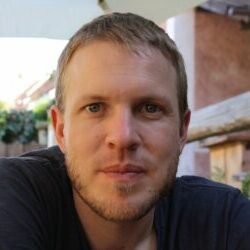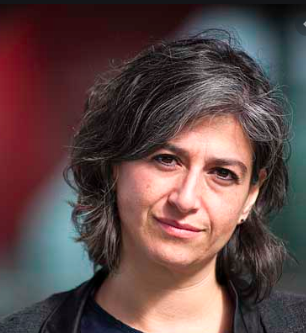building power from the ground up
Community organising brings people together to take collective action on their shared concerns. Starting from local problems and everyday injustices, it has the potential to strengthen people’s sense of agency, build solidarity, and foster leaderful communities. We’ll explore how politicisation can build from action on local concerns to the mobilising of new constituencies seeking radical structural transformation.
While activism and community organising often share goals of social transformation, they can often apply divergent practices, strategies and analysis.
We’ve found an increasing interest in community organising methods amongst many of the activist networks we’ve been working with. They seek a more embedded approach and the tools and skills to mobilise and engage more diverse constituencies.
At the same time, we’ve also been encountering many community organisers who feel their practice falls short of the level of politicisation and mobilisation they aim towards. Often the political ‘neutrality’ the methods can involve leave community power tackling local issues, while failing to confront deeper structural injustice.
This training will seek to bring community organising skills into a clear political framework, in a way that can enhance activist practice and extend the scope and ambition of community organising.
Community organising depends on key skills for reaching out beyond the circle of usual suspects. It offers methods for really listening for what matters and motivates people. It shares tools for connecting people and helping them organise to empower collective action. This training will share these key skills and the frameworks we can use for applying them.
We’ll combine community organising with political analysis, to bring fresh and powerful approaches to social change practice.
In the solidarity economy:
(See details of our approach to radical economics here)
Contact us
to apply

Location:
Steve has 20 years of experience working as a community, union, and political organizer in both the United States and Europe. He currently lives in Prague, and works on several trans-European and transatlantic organizing initiatives. Tracing his roots to the US labor movement, he made the transition to political organizing in 2010 when he went to work for the Working Families Party (WFP). In 2014 he moved to Europe, but he continues to support US-based organizing at the WFP, and has also taken a leadership role in developing the European Community Organizing Network, a hub for the community organizing sector in Europe. He has developed a community of practice with the organizers and movement educators of the Grassroots Power Project, a movement support organization founded with the goal of shifting community organizing practice towards less-siloed, more transformative approaches. In this role he serves as a link between the US and European organizing sectors.

Location:
Valery is a labour organizer, campaigner, trainer and a social and migrant rights activist. She worked for 9 years in the Justice for Janitors Campaign throughout the U.S., and then went on to share and jointly adapt a “social unionism” organising model in South Africa, Germany, Denmark, the Netherlands and the UK. She worked at the “Change to Win – European Organising Centre” for 8 years campaigning in various service and emerging economy sectors including airports, social care and renewable energy sectors. Valery is now working for the Strategic organising Unit at UNISON helping develop organising, campaigning capacity and worker organising centres for fragmented privatized workers in the United Kingdom.

Location:
An Maeyens (she/her) is a facilitator and trainer with over two decades of experience in grassroots movements. She specialises in creative, inclusive agenda design and brings deep expertise on group culture, power dynamics, and transformative learning. Starting of in the anti-globalisation movement she has trained thousands in civil disobedience, supported international coalitions, and developed multilingual training programmes and toolkits. Her work spans movements, cultures, and countries, guided by a commitment to care, accessibility, and leaderful organising.

Location:
Ari’s activism began in 2002, at age 16, as a Bosnian refugee in Canada, where they founded and coordinated a group for LGBTIQ high school students and allies. They were a co-founder and leader at kolekTIRV in Croatia and Trans Network Balkan, involved in community organizing, advocacy, program management, team coordination, capacity building, education, media work, campaigns, events, fundraising, etc. In 2024, they joined the Supervisory Board of the Croatian Trade Union Collective of United Precarious Workers and Activists (SKUPA).
Beyond the Balkan region, Ari served as a Board member at Transgender Europe (TGEU), where they held roles as Secretary, Treasurer, and later Co-chair. They have also been a trainer with the Center for Artistic Activism and served on the Advisory Committee and since 2022 as a Community Care Facilitator at FRIDA — The Young Feminist Fund. Since 2024 they are the Operations Manager at Global Philanthropy Project.

Location:
Sergio (all pronouns) was born in Romania and migrated to Germany in the early 2010s. In the past, he was a social worker with homeless people and a social consultant for Eastern European migrants for various organisations. Trained as a filmmaker, he spent two years making a documentary about the ‘civic reawakening’ in Romania and the waves of protest it brought with it. In connection to this, Sergio is currently co-steering the development of an online open-source participative knowledge production platform on activism in Romania. Over the past nine years, Sergiu has offered his skills to various journalists, grassroots collectives and campaigns, mostly working within the labour rights, climate justice, international solidarity and anti-authoritarian movements in Germany and Romania. Nonetheless, his biggest focus since 2020 has been his work as an organiser with the anarcho-syndicalist Free Workers Union, where he focuses mostly on organising Romanian migrant workers on construction sites, in factories and in the agricultural field.

Location:
Linzy Na Nakorn is a movement director, politicised somatics practitioner, community organiser and facilitator. For the past decade she has been facilitating movement, body work and creating theatre, dance and participatory performance that advocates for and organises with communities in pursuit of housing, disability and racial justice. Her movement practice focuses on trauma-informed approaches to building resilience, capacity and joy via way of the body for personal, interpersonal and community sustainability. Linzy was a Co-Director of The Big Ride for Palestine in partnership with The Gaza Sunbirds, Native Woman Ride and Middle East Children’s Alliance; using cycling as a tool for mobilising active solidarity and in support of campaigning for the rights and self-determination of the Palestinian people. Linzy is part of a UK network of activists and artists advocating for Radical Care – supporting organisations, researchers and institutions to work towards system change in societal approaches to labour, leadership and access.

Location:
Jeroen (he/him pronouns) has been involved in grassroots social movements for more than two decades now, starting back when he was fifteen. Throughout the years the fights for “climate justice” and “migrant justice” have been consistently on top of the list of struggles that make his heart beat faster. A key transformative moment for Jeroen was reading Paulo Freire’s Pedagogy of the Oppressed. Freire’s revolutionary pedagogy gave him a language to support the creation of emancipatory learning environments, rooted in a desire for collective liberation. Jeroen has also been exploring in depth Boal’s Theatre of the Oppressed and Joanna Macy’s The Work That Reconnects among other methodologies to build his trainer’s toolkit. Inspired by the liberatory possibilities of these traditions, he started an organization with a friend, LABO vzw, based in Belgium, where he has worked as a trainer and campaigner between 2013 and 2023.

Location:
Ella brings more than 10 years’ external experience working with not for profit and community based organisations across diverse themes including: advocacy for migrant communities; local community engagement in national policy making; and structural relationships between poverty and disenfranchisement, and education and poverty. Immersed in critical theory in her early 20s she brings a holistic and questioning approach, and is passionate about systemic solutions that centre relationship and interconnection between ecology and society. A long standing member of the collective, Ella has been part of the core team since the inception of the Ulex Project. Her work bridges facilitation, developing project partnerships, governance, strategy, operations, and project and programme evaluation. She has developed and overseen more than 70 partnerships with a range of different actors across European social movements.
Ulex: Latin (argelaga Catalan, gorse English) noun:
1. A thorny-evergreen flowering shrub, with a high capacity for regeneration and resilience. Its seedpods open in contact with fire and it reshoots from charred stumps. A successionary plant that grows well under challenging conditions. It improves soil fertility through nitrogen fixing, preparing the way for renewed biodiversity.
2. A traditional choice for igniting fires. Burns hot and bright.
3. A networked project adding nutrition and fertility to European social movements through training and capacity building. It kindles the realisation of social justice, ecological intelligence, and cognitive vitality.